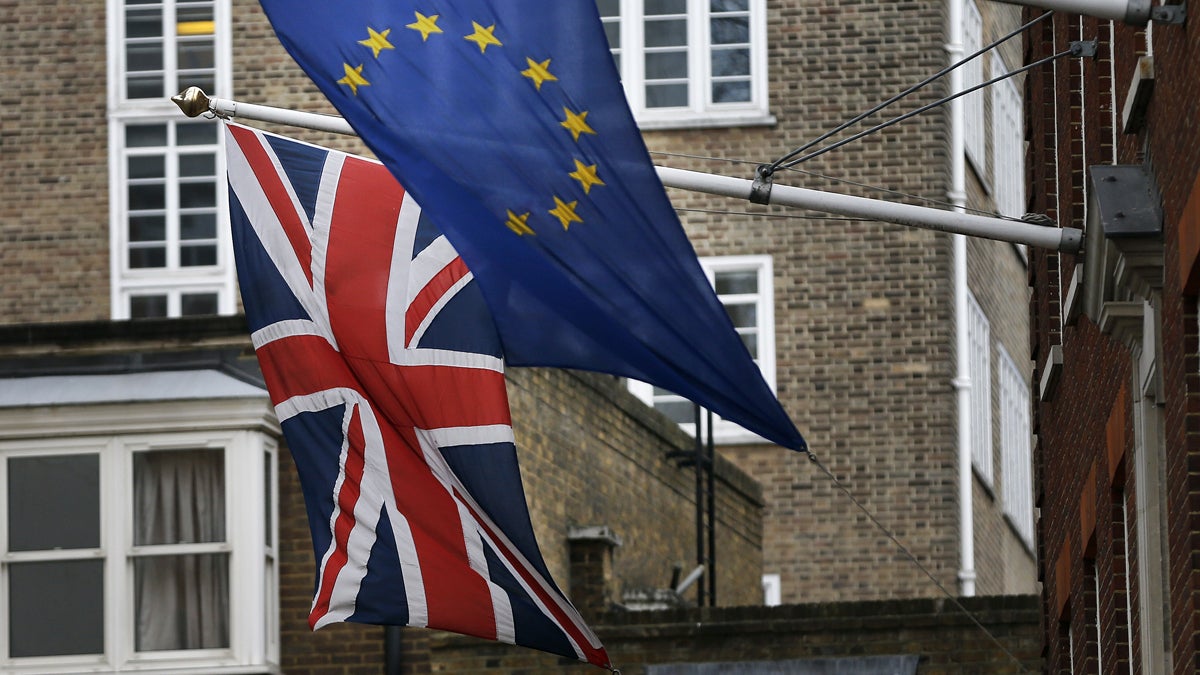Great Britain to leave the European Union? Don’t bet on it.

A European Union flag is shown hanging beside the Union Jack at the Europa House in London. (AP Photo/Frank Augstein)
The referendum on whether Britain should remain in the European Union or beat a retreat (“Brexit”) will be held on June 23. Perhaps the bookies are the best guide to the outcome.
The choice is fraught with issues of pride, nationhood, xenophobia and, above all, insularity. Britain is, after all, an island, a circumstance that can give rise to the invented newspaper headline: “English Channel covered by fog; Europe completely cut off.”
And it’s true that even though Britain is a part of the E.U., it continues to use the pound instead of the euro and to weigh things in ounces rather than grams … and if you drive anywhere in the U.K. your journey will be measured in miles, not kilometers.
Many Brits express outrage at the petty laws and proposals from E.U. headquarters in Brussels — some 3,600 pieces of legislation since 2010 — including rules about the curvature permitted in cucumbers or bananas and the Union Jack being displayed on packages of meat.
The main proponent of the Brexit side is Boris Johnson, the flamboyant former mayor of London and the favorite to eventually replace Prime Minister David Cameron. In an interview with The Spectator, a publication of which he was once the editor, Johnson asked: “Do you see Britain’s future as an open, global, free-trading, dynamic economy based on confidence in tried and tested British institutions? Would you believe that in order to survive we need to remain embedded in something that fundamentally takes away our powers?”
There is however a counter argument to all of this: namely that by exiting the E.U., Britain would cast itself adrift, possibly become an irrelevance. Of course, the Europeans would lose, too. Britain has a vibrant economy and a strong military. Its role in NATO, whose constitution states in Article Five that “an armed attack against one or more of its members shall be considered an attack against them all.”
Which brings us to where the United States might stand. President Obama recently said that a vote for Brexit could push Britain to the back of the queue in any trade deals with the U.S. He argued that it would be easier for the U.S. to negotiate with a bloc of countries rather than with a single nation.
The outcome of the referendum is close; but London bookies, who are great judges of probability, are offering odds of 11/4 against a British exit.
WHYY is your source for fact-based, in-depth journalism and information. As a nonprofit organization, we rely on financial support from readers like you. Please give today.





